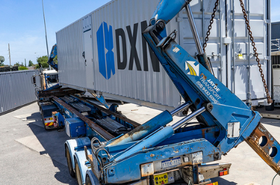South Korea is planning to create a major data center cluster, with an IT capacity of up to 1GW, in the Gangwon Province.
The site, near Gangneung and Donghae in the east of the country, could be home to up to 50 data centers, each with a capacity of 20MW, according to a report in Korean media outlet the Maeil Business Newspaper.
It cites power industry sources, who said the Korean government’s Ministry of Trade, Industry, and Energy will back the plan as it will help utilize energy generated by a cluster of power stations in the region.
Gangwon is home to several coal and nuclear power stations, but they have struggled to utilize their output issues due to transmission and capacity constraints. However, new laws introduced recently allow power companies to sell directly to local customers.
“The Gangneung and east coast region faced power generation issues with output control at about 20 percent due to insufficient transmission capacity,” an industry insider who spoke to Maeil Business Newspaper said. “With direct electricity sales, data centers nearby those plants will be able to save around 20 percent of their annual operational costs.”
The government plans to use existing industrial sites, as well as unused land, on which to build the data centers, the report said. Further details on the build-out have not been released, but site selection is likely to be complete before the end of the year.
If confirmed, it will be the second 1GW data center campus planned for South Korea. Last year the government said it would build a large-scale data center complex with up to 25 40MW data centers in the Salaseido area of Haenam, Jeollanam-do. These data centers will reportedly be built in phases by 2037, with the first phase will see five buildings and a 300MW substation developed by 2027.
Korea’s government is also funding two data centers to support the development of AI chips. The two facilities will be located in Gwangju and Gyeonggi Province's Pangyo, and will be dedicated to supporting the growth of new industries including urban air mobility (UAM), hydrogen power, self-driving cars, and EV batteries.







